| Tuesday Evening, September 20 |
| 5:00-7:30 pm Registration |
| |
| 6:30-8:30 pm Welcome Reception and Program |
| |
| Wednesday Morning, September 21 |
| 7:30 am - 5:00 pm Registration and Help Desk |
| |
| 7:30-9:00 am Continental Breakfast |
| |
| 9:00-10:30 am Opening Session. Welcome to Denver! |
| |
| Video Welcome from The Honorable Elizabeth Dole |
|
.jpg)
Honorary Chair -- 2016 National Lifespan Respite Conference
Founder, Caring for Military Families: The Elizabeth Dole Foundation
Senator Dole, with a long and distinguished career helping women and minorities reach their full potential, most recently founded Caring for Military Families: The Elizabeth Dole Foundation to raise awareness and support for the 5.5 million young spouses, mothers, fathers and other loved ones caring for our nation’s wounded warriors at home. In this role as a distinguished caregiver advocate, she has served as a stalwart champion for military caregiver supports, including meaningful and accessible respite services, and for ensuring that the Lifespan Respite Care Program is fully funded.
|
| Welcome Messages |
Lynn Robinson, Easter Seals Colorado and the Colorado Respite Coalition
Jill Kagan, ARCH National Respite Network and Resource Center
Julie Krow, Deputy Executive Director of Community Partnerships for Colorado Department of Human Services
|
|
Bovine Metropolis Theater
The collaborative nature of improvisation teaches us to learn and adapt to new situations in a positive and uplifting way. Established in 1996, Bovine Metropolis Theater is the first dedicated school and theater for improvisation in the Rocky Mountain region. The Bovine uses improvisation to create exceptional ensembles for life, business and the stage.
Enjoy the performance!
|
| 10:30–10:45 Break |
| |
| 10:45–12:00 Breakout Session A |
| A-1 |
 Elevating Partnership & Collaboration Between your Respite Coalition & Lifespan Respite Grantee Elevating Partnership & Collaboration Between your Respite Coalition & Lifespan Respite Grantee
Alicia Blater, NC Lifespan Respite Project Director, Family Caregiver Support Program Consultant, Raleigh, NC
Cindy Miles, President, NC Respite Care Coalition and Family Caregiver Support Program Specialist, Southwestern Commission Area Agency on Aging, Sylva, NC
Successful lifespan respite care programs require mutual collaboration and a willingness to help all stakeholders shine and grow their capacity. It’s sometimes about asking questions like, “what do they need and how can I help make that happen?” This presentation will highlight North Carolina’s efforts to work together and their process of building bridges to sustainability and success for one another.
|
| A-2 |
A Research Agenda for Respite Care: Deliberations of an Expert Panel
Ray Kirk, PhD, RS Kirk & Associates and Senior Consultant to The ARCH National Respite Network and Resource Center, Pittsboro, NC Respite is considered to be a positive and preventive service and research exists to support this claim. However, a 12-year literature review of respite research revealed many equivocal findings.The ARCH National Respite Network and Resource Center in collaboration with the U.S. Administration for Community Living convened an expert panel of researchers, advocates, and funders to assess the status of respite research and develop a research agenda to establish a stronger evidence-base for respite services. This session will present up update on the implementation of the Panel's recommendations and explain why this is so important to the respite field.
|
| A-3 |
 Maximizing Respite Dollars Through Partnership and Collaboration: One Community’s Story of Caregiver Support Maximizing Respite Dollars Through Partnership and Collaboration: One Community’s Story of Caregiver Support
Janice Sparks, PhD, Senior Staff Analyst, Harris County Area Agency on Aging and Program Manager, Care Connection, Aging and Disability Resource Center, Houston, TX
Suzanne Terry, Human Service Program Manager, Harris County Area Agency on Aging, Houston, TX
In order to maximize Lifespan Respite Program dollars, several community organizations lead by the Harris County Area Agency on Aging and Care Connection, Aging and Disability Resource Center have worked together over the last four years to deliver uniquely crafted respite services to caregivers caring for individuals across the age spectrum. The program has been very successful, providing direct services in the form of vouchers, as well through evidence-based information and education to deliver a comprehensive scope of support services.
|
| A-4 |
Connecting Kinship Caregivers - Creative Support Programs for Kinship Families
Carrie Savage, Kinship Program Coordinator, Catholic Charities, Denver, CO
Peggy Spaulding, Program Specialist, State Unit on Aging , CO Department of Human Services, Denver CO
Nearly 1 in 12 American children live in a household run by a grandparent or other relative. Catholic Charities of Denver will share their experiences running several support groups for kinship care families, and how they have recently collaborated with Easter Seals Colorado to support their unique needs. This presentation will also discuss funding resources for kinship families, from a local to statewide level.
|
| A-5 |
Lessons Learned in the Delivery of Respite Care for Military Families with Children having Special Needs
Bonnie Storm, M.S. Ed., Senior Director, Respite Care, Child Care Aware of America, Arlington, VA
Child Care Aware® of America has been facilitating and improving on implementation of the military Exceptional Family Member Program (EFMP) Respite Care for eight years. The program has evolved from initial concepts to full development by understanding military families’ needs and adapting the program to meet those needs. There are lessons learned and best practices for respite care implementation. The presentation is aimed at exploring best practices that might be considered by other respite care practitioners.
|
| A-6 |
Elevating Respite to Care for the Caregiver
Kristin Steadman, Founder and Executive Director of Night Lights, Inc., Littleton, CO
This presentation will demonstrate the best practices of elevating respite care through volunteer and faith-based models for children with special needs and their siblings, and will highlight a model of respite care that has been replicated through-out the Denver metro area. In addition, it will discuss compassion fatigue for caregivers of children with special needs, thus bringing awareness to the need for respite care.
AND
A Path to Overnight Respite for Caregivers - A Respite Model for Caring for the Caregiver
Lisa Story, MSCP, LPC, CT, Executive Director, Hope Grows & Psychotherapist, Moon Township, PA
While finding time for self in the midst of the demands of being a caregiver is difficult, three components as best practice for caregivers to retreat for respite of self are explored; empowerment, awareness, and emotional connection. At the core of these best practices is a model of overnight respite that weaves positive psychology, holistic therapies, and mindfulness-based practices with healing and restorative gardens, fostering a change of perspective and a healthier caregiver identity role. One objective of the session will be to understand the therapeutic benefits that nature and the natural world provide and how using this modality of therapy can be a part of a healthy caregiver identity.
|
|
| 12:00 - 12:15 PM Break |
| |
| Wednesday Afternoon, September 21 |
| |
12:15–2:00 Luncheon Program
State and National Champions for Respite
|
Respite Champion Awards to Colorado Legislators presented by the Colorado Respite Coalition
Tenth Anniversary of the Enactment of the Lifespan Respite Care Act
Video Presentations from the Honorable Jim Langevin (D-RI) and the Honorable Gregg Harper (R-MS) U.S. House of Representatives, Washington, DC on the Reauthorization of the Lifespan Respite Care Program and the Tenth Anniversary of the enactment of the Lifespan Respite Care Act.
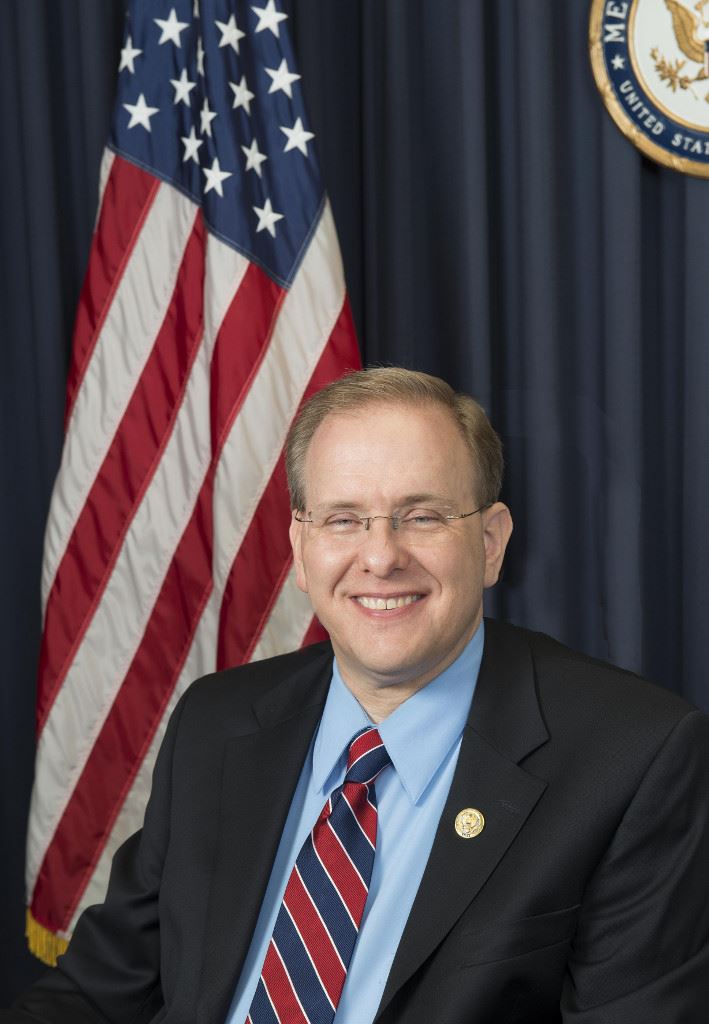
Video Message of Rep. Jim Langevin (D-RI)
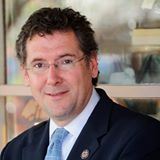
Video Message of Rep. Gregg Harper (R-MS)
Keynote Presentation

Percy Devine III, MSW
Bi-Regional Administrator
Regions VI and VIII
Administration for Community Living
U.S. Department of Health and Human Services
Percy Devine III serves as Bi-Regional Administrator of the Administration for Community Living in Region VI and Region VIII (Dallas and Denver regional offices) with responsibility for representing the Assistant Secretary for Aging and advocating for seniors in the Regions, and for maintaining stewardship of the aging services programs in Arkansas, Louisiana, Oklahoma, New Mexico and Texas of Region VI and Colorado, Montana, North Dakota, South Dakota, Utah, and Wyoming of Region VIII.
|
| |
| 2:00 - 2:15 Break |
| |
| 2:15–3:30 Breakout Session B |
| B-1 |
 Lifespan Respite Panel: Best Practices at Mile Post 7 Lifespan Respite Panel: Best Practices at Mile Post 7
Kevin Foley, Administration for Community Living, U.S Department of Health and Human Services, Washington, DC PPT Presentation
Peggy Spaulding, Program Specialist, State Unit on Aging , CO Department of Human Services, Denver CO PPT Presentation
Kerrie Reidelbach, Montana Lifespan Respite State Program Manager, Senior & Long Term Care Division, MT Department of Public Health and Human Services, Helena, MT PPT Presentation
Linda J. Porter, Program Coordinator, Lifespan Respite Washington/Senior Services of Snohomish County, Everett, WA PPT Presentation The Lifespan Respite Care Program, funded by the U.S. Administration for Community Living (ACL), was designed to build coordinated statewide systems of respite care services for family caregivers caring for individuals of all ages and conditions. ACL has provided grants to 33 states and the District of Columbia since 2009. This session will provide an overview of the program nationally and allow three state grantees to highlight the most significant of their grant-funded activities and the outcomes.
|
| B-2 |
Coping with Humor
Rosie McMahan, M.Ed./A.C.S., Optimistic Options, Amherst, MA
As caregivers, it is no wonder that our sense of humor is often the first thing to go, even though we know that humor is helpful and laughing is healthy. In 2011, I became my mom and brother's caregiver. My mom was elderly and declining, and my older brother was born with permanent physical and cognitive disabilities. Nothing prepared me for becoming their primary caregiver, nothing. But finding the funny is essential to my well-being. This session will allow participants, especially family caregivers, to feel more able to laugh, feel connection to other caregivers as it relates to the often absurd and hysterical situations in which we find ourselves, and feel more able to ask for help when needed.
|
| B-3 |
The Stress-Busting Program: An Evidence Based Program for Family Caregivers
Sharon L Lewis, RN, PhD, FAAN, Owner, Stress-Busting Program, LLC, Helotes, TX
Debbie Billa, Grants Manager, WellMed Charitable Foundation, San Antonio, TX
Chronic stress undermines the physical and emotional health of family caregivers. It affects spousal caregivers differently than adult children. The Stress-busting Program for Family Caregivers is an evidence-based program that meets the Administration on Community Living's highest criteria, and is proven to reduce stress, anger and anxiety, and improve the quality of life of family caregivers. Hear how this nationally recognized, master trainer/lay leader model can be adopted in your community.
|
| B-4 |
The Respite Care Referral Program: A Unique Area Agency on Aging Program in Maryland
Mary Chaput, Program Director, Family Caregiver Support Programs, Anne Arundel County Department of Aging & Disabilities, Annapolis, MD
Dee Scharff, Program Coordinator, Respite Care Referral Program, Anne Arundel County Department of Aging & Disabilities, Annapolis, MD
Anne Arundel County’s Respite Care Referral Program (RCRP) is unique to Maryland’s Area Agencies on Aging. In the mid-1980’s, the program began as a training program for low income women. Thirty-years later, RCRP has become a lifeline for many of the county’s caregivers who rely on it to provide a registry of screened and trained workers who provide home care at a lower cost than most agencies. AND
Rural Respite Voucher Option with a Family Caregiver Centered Approach
Jillian Broce, Family Caregiver Coordinator, Weld County Area Agency on Aging, Greeley, CO
Holly Darby, Community Outreach Manager, Weld County Area Agency on Aging, Greeley,CO
During this session, conference attendees will learn about a respite voucher program offered in a large 4,000+ square mile, rural county where home health staffing is a challenge. The program reaches multiple populations with varying medical conditions. The program is caregiver centered choice and is a wonderful option for caregivers that are resistant to accepting assistance. Session participants should be in a position to create their own respite program.
|
| B-5 |
Partners, Policies and Politics - Playing Inside and Outside the Formal and Informal Playgrounds of Family Caregiver Supports
Dorinda A. Adams, LGSW, Programs Manager, Office of Adult Services, Social Services Administration, State of Maryland Department of Human Resources, Baltimore, MD
Tammy Bresnahan, Associate State Director of Advocacy, AARP Maryland, Baltimore, MD
Elizabeth Weglein, Chair, Maryland Caregivers Support Coordinating Council, Baltimore, MD
Partnerships are often created by daily interactions within traditionally defined roles. We often overlook strategic planning in developing our partnerships and accept that it is always the same players at the table. This workshop will focus on creating partnerships within the state administrative landscape in order to ensure that Respite Care Services are part of everyone's agenda. While this workshop will be focusing on the "big picture" , there will be local applications to consider.
|
| B-6 |
Reaching the Peak: Innovative and Cost Effective Community-Based Respite Programs
LeAnn Massey, Executive Director, Respite Care, Inc., Fort Collins, CO
Natalia Perea, Program Director, Respite Care, Inc., Fort Collins, CO
Lauren Whynott, Development Director, Respite Care, Inc., Fort Collins, CO
As one of the few 24/7, facility-based respite centers in the country not supported by state and government funds, Respite Care, Inc. has had to be innovative in their delivery of services. This session will walk each participant through the development and implementation of community based programs, including week-long Summer Day Camp programs and Respitalities, for people with developmental disabilities. We will explore staffing, training, utilization of volunteers, activities, funding and evaluation. The presentation includes comprehensive handouts, visual examples and time for questions. Participants should walk away with the knowledge and ability to reach new heights with their community-based respite programs.
|
|
| |
| 3:30-3:45 Break |
| |
3:45–5:00 Workshops Session C
|
| C-1 |
Climbing the Heights to Sustainability through Dynamic Partnerships
Elenore Parker, President, Rewarding Work Resources, Brookline, MA
Jeffrey Keilson, Vice President, Rewarding Work, Resources, Ashland, MA
Lisa Gurgone, Executive Director, Home Care Aide Council, Watertown, MA
Using case studies acquired from experiences and lessons learned in 8-states, the presentation will demonstrate how to build a sustainable respite resource where caregivers can find experienced respite providers who meet their specific needs. The presentation will discuss challenges to overcome, such as lack of sustainable funding, political disruptions, changes in program leadership, and engaging diverse partnerships. The presentation will explore building atypical coalitions that can work to successfully sustain and grow organizations supporting respite.
|
C-3
|
Tools for Building a Well-Trained and Educated Respite Workforce
Ronald Lucchino, Ph.D., Professor of Biology and Director of Institute of Gerontology at Utica College at Syracuse University, Emeritus
Susan Prater-DeBeaugrine, Assistant Executive Director, The Arc of Florida, Tallahassee, FL
The purpose of this presentation is to assist in building a well-educated and trained respite workforce that can support individuals with intellectual and other developmental disabilities (I/DD), persons on the Autism Spectrum, and their families. The Session will cover the many programs the Arc of Florida has initiated to help build successful experiences for Floridian's with I/DD through behavioral, aging and health related issues and solutions, as well as, Dr. Ron Lucchino’s training modules on age related biological changes in individuals with intellectual and other developmental disabilities (I/DD).
|
| C-4 |
 Nebraska Lifespan Respite Evaluation: A Multi-Year Approach and Preliminary Data Nebraska Lifespan Respite Evaluation: A Multi-Year Approach and Preliminary Data
Jolene J Johnson, Ed.D., University of Nebraska Medical Center, Munroe-Meyer Institute, Omaha, NE
Sharon Johnson, Program Coordinator, Nebraska Lifespan Respite Program, Children & Family Services, NE Department of Health and Human Services, Lincoln, NE
This session will discuss the overall evaluation plan and preliminary results for the Nebraska Lifespan Respite program. Family caregiver outcomes, respite care provider outcomes and systems levels issues, including REST provider training and results from the Employee Engagement, will be shared and discussed. The three-year evaluation plan including the goals, guiding questions, partners and instruments will be shared. Attendees will gain an understanding of planning a respite evaluation within a collaborative framework; will learn how respite impacts family caregiver outcomes across multiple areas including health, stress, relationships and finances; and will gain knowledge on employee engagement programs, including outreach and marketing.
|
| C-5 |
Hidden Heroes: Meeting Respite Needs of America's Military and Veteran Caregivers
Jed D. Johnson, Senior Vice President, Strategic Initiatives, Easter Seals headquarters, Washington, DC
The Elizabeth Dole Foundation’s 2014 Hidden Heroes Report revealed the limited availability of respite care for our nation’s 5.5 military caregivers. Whether you seek to support the spouse of a post-9/11 wounded warrior or the service member whose has a child with special needs, this session shares practical resources, training materials and strategies for success. It will also provide an overview of the current military caregiver public policy landscape.
|
| C-6 |
So you want to start a respite center. What we have learned in 16 years of serving the community.
Linda Ellegard, Executive Director, Special Kids Special Families, Colorado Springs, CO
Starting a respite center requires careful thought, study and strategic partnerships within your community. You will learn elements of a business plan from assessment of need to designing and finding your facility, zoning considerations, and working with State credentialing agencies. You will learn how to market for funding and referrals, how to develop your daily schedule and program, recruiting and training your staff and sustaining your program through ever changing times.
|
|
| |
| Wednesday Evening, September 21 |
| |
| Dinner on Your Own in Denver's Mile-High City |
| |
| Thursday Morning, September 22 |
| 7:30 am - 5:00 pm Registration and Help Desk |
| |
| 7:30-9:00 am Continental Breakfast |
| |
|
9:00–10:15 am Morning Plenary: Keynote Speaker
|
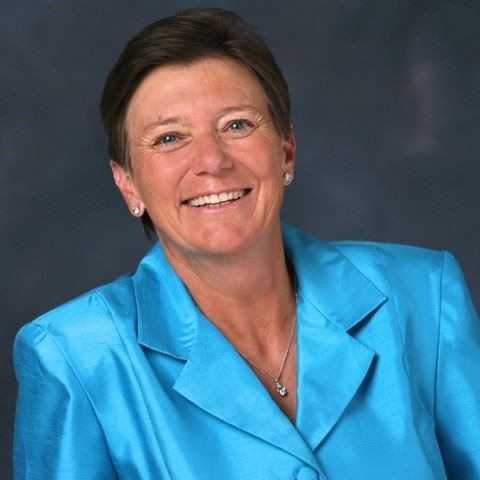
Jane W. Barton, MTS, MASM, CSA
Speaker and Author
Caregiving for the GENIUS
Jane W. Barton, author of Caregiving for the GENIUS, is a passionate speaker, writer, and listener. As the founder of Cardinal, LLC, she provides educational programs, books, and blogs to assist people in confronting the daunting challenges posed by aging, serious illness, and the end of life. Jane is well versed in the areas of grief and bereavement, caregiving, hospice and palliative care, change and transition, and spirituality and health. As the Caregiving Ambassador for AARP Colorado (2014-2016), she offers educational programs for personal and professional caregivers throughout the state of Colorado.
|
| |
| 10:15 - 10:30 Break |
| |
| 10:30 - 11:45 Breakout Session D |
| D-1 |
Respite for Caregiver Health: Strategies to Maximize Benefits, Minimize Stress
Emily Jean Davidson, MD, MPH, RYT, Boston Children's Hospital, Jamaica Plain, MA
Caregiving can take a toll on caregiver health in both predictable and unexpected ways and respite used wisely can lessen these effects. This seminar reviews the impact of caregiving on physical and mental health and provides strategies for caregivers to maximize the health benefits of respite. The session will include a brief respite and opportunity for self-care in the form of chair yoga and meditation.
|
| D-2 |
Veteran Directed Services - Texas Style: the VA and Bexar Area Agency on Aging Working Together
Susan D. Blevins, Care Transitions Intervention Coach, Care Coordination and VD-HCBS, Bexar Area Agency on Aging, San Antonio, TX
Laura B. Ledesma, Care Coordination Coordinator, Bexar Area Agency on Aging, San Antonio, TX
The Veterans Administration has become a key provider of Respite and Support Services for older Veterans and their caregivers. Veteran-Directed Home and Community Based Services (VD-HCBS) is a program of the U.S. Department of Veterans Affairs (VA) for self-directed care. The Veteran or Veteran Representative hires, supervises, evaluates and pays the Employee to provide specific services and supports, such as respite, that the Veteran needs to live in his or her own home or with family based on medical needs as opposed to having to live in a long term facility. Working together, the VA and the Bexar Area Agency on Aging have partnered successfully to implement a VD-HCBS program with promising results.
|
| D-3 |
Caring for Caregivers: Respite via TimeBanking
Kathy Perlow, BBA, Outreach Coordinator, TimeBanks USA Board of Directors and Community Exchange TimeBank Membership Coordinator (retired), Division of Community Health, Lehigh Valley Health Network, Bethlehem, PA
TimeBanks create neighbor-to-neighbor exchanges whereby participating community members trade their time in mutual support of one another’s needs. A CareBank is a TimeBank that focuses on the needs of the aging and their caregivers. The session would provide (1) an introduction to launching and administering a TimeBank and (2) alternative strategies creating a Carebank as (a) a social enterprise, (b) a university sponsored project or (c) an eldercare sub-group within a place-based neighbor-to-neighbor timebank.
|
| D-4 |
Advocacy 101 and Policy Update: Strategies to Elevate Respite for Policymakers
Jennifer Dexter, Assistant Vice President, Government Relations, Washington, DC
Laura E. Weidner, Senior Director, Federal Government Relations, National MS Society, Washington, DC
More than 43 million family caregivers provide care and support to individuals with disabilities or the aging. Government funded supports exist, and Congressional awareness is growing, but funding is limited. In this session national leaders on federal policy affecting access to respite and other caregiver supports will update attendees on specific respite and caregiver policy initiatives at the federal level, share tools and techniques to help attendees increase their advocacy skills, and provide insight into policy trends that will affect caregivers in the future. No matter what your role in the caregiver world is, there will be information in this session that will help you better play your part in the process.
|
| D-5 |
Therapeutic Respite for Crisis Prevention/Stabilization for People with Intellectual and Developmental Disabilities (I/DD) and Behavioral Disorders
Corry Robinson, PhD, MA, Professor Pediatrics, Psychiatry, and Preventive Medicine, University of CO Denver School of Medicine, Aurora, CO
Sharon Jacksi, PhD, Chief Executive Officer, Strive, Grand Junction, CO
Carol Meredith, The Arc - Arapahoe and Douglas Counties, Centennial, CO
For people with complex developmental disabilities and co-occurring mental illness or behavioral disorders and their families, therapeutic respite and regular scheduled respite are critical components of services in the home or the community. Access to these respite services were identified as major gaps in Colorado systems of care. Learn strategies to develop and secure funding for a pilot program to fill gaps in services for people with developmental disabilities and behavioral disorders. A comprehensive model of services has been highly satisfactory for families and individuals and has proven to reduce emergency department visits, hospital stays, lower costs, and strengthen cross system collaboration.
|
| D-6 |
 Montana's Lifespan Respite Cost Share Voucher Program Montana's Lifespan Respite Cost Share Voucher Program
Vicki Clear, Lifespan Respite Program Director, Developmental Educational Assistance Program (DEAP) and Montana Lifespan Respite State Program Coordinator, Miles City, MT
Kerrie Reidelbach, Montana Lifespan Respite State Program Manager, Senior & Long Term Care Division, MT Department of Public Health and Human Services, Helena, MT
Montanans needing respite face two very challenging issues; finances to pay for respite and finding qualified providers available to meet their respite needs. Our solution is a person-centered voucher program that allows the caregiver to choose their own respite provider and then reimburses the caregiver for payment. We have also implemented a sliding scale cost share system that makes our respite dollars stretch farther. You’ll hear about the process and lessons learned.
AND
 Climb Every Mountain…Soon You'll Find Your Dream -- Lifespan Respite Washington Climb Every Mountain…Soon You'll Find Your Dream -- Lifespan Respite Washington
Linda J. Porter, Program Coordinator, Lifespan Respite Washington/Senior Services of Snohomish County, Everett, WA
Moving beyond the “sound of music”, this year Lifespan Respite Washington will highlight the peaks and valleys of developing a unique respite program as it moves across agencies and communities like an upland river, gathering momentum and creating change. Beginning as a coalition, the program evolved into a unique pilot project partnering with respite vendors across the lifespan. It moves upward as a recognized program for caregivers who might otherwise be stranded on the mountain.
|
|
| 11:45 - 12:00 Break |
| |
| Thursday Afternoon, September 22, 2016 |
| |
| 12:00 - 1:45 pm Lunch and Luncheon Speaker |
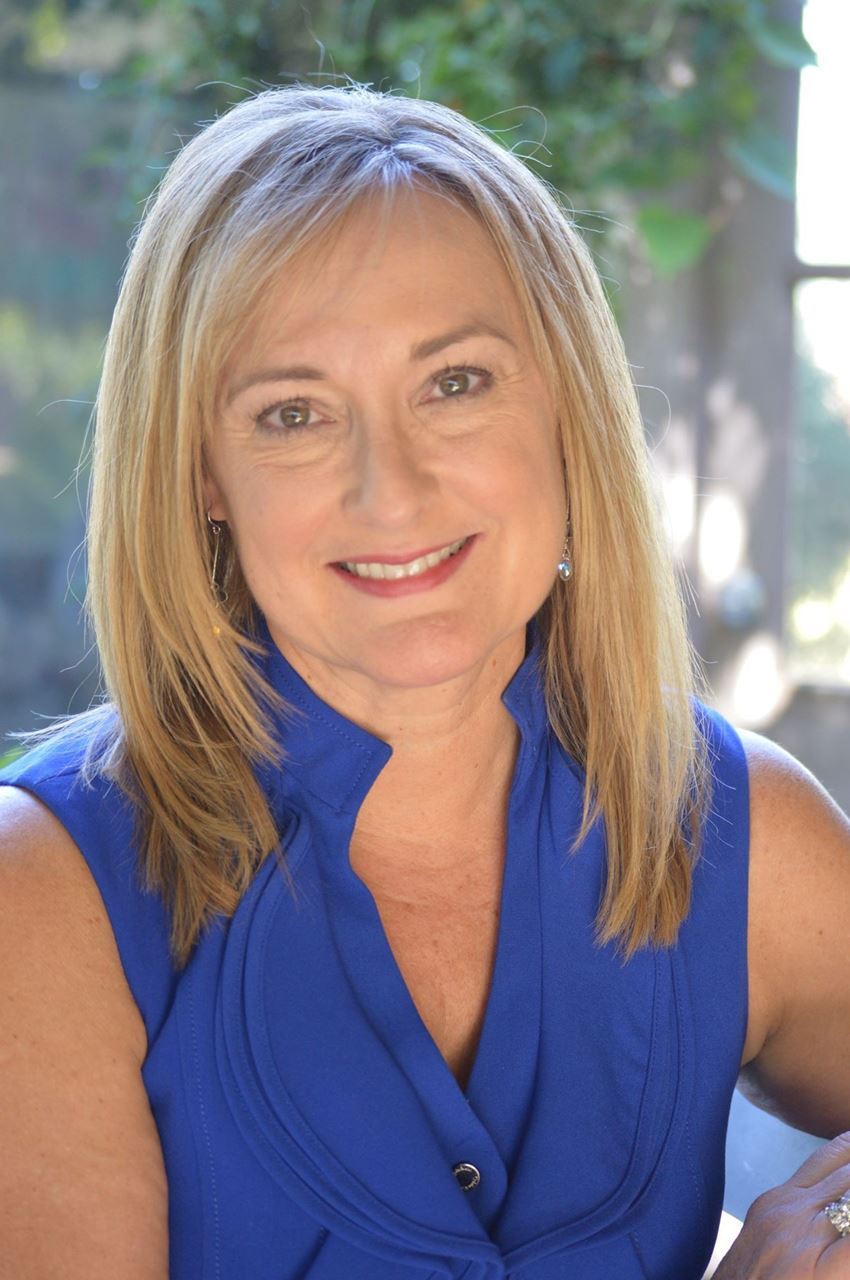
Amy Goyer
Author, Speaker, Consultant
AARP’s Family and Caregiving Expert
Choosing to Care, PPT Presentation
Amy Goyer is an author, speaker and consultant specializing in aging and families, including caregiving, grandparenting and multi-generational issues. She has authored numerous print and online publications, including the books, AARP’s Juggling Work and Caregiving and Things to Do Now That You’re…a Grandparent. She is a recognized media authority, including interviews for ABC, NBC, CBS, NPR, The New York Times, The Washington Post, People Magazine and numerous other media outlets. As AARP's Family and Caregiving expert, Amy is a columnist and blogger on aarp.org, and has a “Taking Care” YouTube web series with actionable tips for caregivers.
A passionate champion for all types of caregivers, Amy has been one her entire adult life, and has been an advocate for older adults, children and families for more than 30 years at the local, state, national and international levels.
|
| |
| 1:45 - 2:00 Break |
| |
| 2:00 - 3:15 Breakout Sessions E |
| |
| E-1 |
BRI Care Consultation and Unmet Respite Needs of Family Caregivers
Miriam Rose, Senior Research Analyst II and Research Grants Administrator, Center for Research and Education, Benjamin Rose Institute on Aging, Cleveland, OH
Celeste Graham, Care Consultant, Nevada Senior Services, Inc., Las Vegas, NV
BRI Care Consultation, an evidence-based program, provides personalized caregiver support to manage care and find practical solutions to caregiving challenges. Nevada Senior Services will demonstrate how professionals use this program with families to address caregiver needs for respite and support. Study findings from about 200 Ohio caregivers of veterans with dementia also will be described, including the relationship between use of BRI Care Consultation and decreased unmet needs for respite after one year in the program.
|
| E-2 |
Big “C” Collaboration: A 28 Year View of a Responsive Respite Program for Families and Children with a Disability (PPT Presentation Not Available)
Cara L. Magrane MBA, LCCA, LCPAA, Chief Operating Officer/Administrator, Respite Care of San Antonio, Inc., San Antonio, TX
Respite Care of San Antonio (RCSA) has worked for 28 years to be responsive to the needs of families caring for a child with developmental disabilities. Success is found in collaborative relationships. RCSA hopes to share its legacy of progress and pitfalls in hopes of inspiring attendees to think outside the box and show vulnerability in engaging partnerships to provide respite.
|
| E-3 |
Healthy Respite - A Caregiver's Wellness Guide for Respite
Adeola Sonaike, Ph.D., M.P.H., C.H.E.S, National Get FIT Director, The Family Resource Network, Trenton, NJ
Family Caregivers are accustomed to caring for everyone but themselves 24/7. This interactive discussion will challenge you to elevate your personal wellness as a caregiver through transforming your respite into a healthy respite. The presentation will take you through each dimension of wellness outlined in The Caregivers Wellness Guide so that you may prioritize your personal health and wellness while caring for a loved one.
|
| E-4 |
Respite as a Component of a Holistic Support Program for African American Caregivers of Older Adults
Nichelle Stiggers, Older Adult & Caregiver Services Program, Coordinator & Care Manager, Lutheran Family Services Rocky Mountains, Denver, CO
Carri Ratazzi, Older Adult & Caregiver Services Program Director, Lutheran Family Services Rocky Mountains, Denver, CO Lutheran Family Services Rocky Mountains (LFS) offers respite stipends for caregivers of older adults through our African American Caregiver Support Program. LFS staff members will discuss how respite is provided as a part of a larger, holistic, culturally-responsive program that also includes support groups, individualized counseling, referrals for assistance, and education and support regarding the various roles they play in the lives of their older loved ones.
|
| E-5 |
 Elevating the Needs of Family Caregivers: Why Respite Should Be a Concern to Employers Elevating the Needs of Family Caregivers: Why Respite Should Be a Concern to Employers
Sharon Johnson, Respite Program Coordinator, Children & Family Services, NE Department of Health and Human Services, Lincoln, NE
Sarah Swanson, Family Support & Outreach Coordinator, UNMC Munroe-Meyer Institute, Omaha, NE
Ellen Bennett, Respite Coordinator, Nebraska Respite Network, UNMC Munroe-Meyer Institute, Omaha, NE
This session will present the business case of why employers need to be educated on the needs of family caregivers. Specific strategies for Respite Networks to engage with employers to better support their employees who are family caregivers will be offered. Attendees will obtain data to get employers’ attention on why supporting family caregivers is essential to ‘their bottom line’ and marketing templates that can be adapted to engage with employers in their area.
AND
 Elevating Respite through a Corporate Outreach Model: Employee survey wields important respite needs Elevating Respite through a Corporate Outreach Model: Employee survey wields important respite needs
Emily Kearns, PhD, MBA, Consultant, Massachusetts Lifespan Respite Coalition, Andover, MA
Amy Nazaire, MA, Director, Massachusetts Lifespan Respite Coalition and Massachusetts Department of Developmental Services, Hathorne, MA
This session presents a replicable, cross-sector corporate outreach model. The Massachusetts Lifespan Respite Coalition partnered with the EMC/DELL corporation to develop an employee caregiver survey to assess employee difficulty in balancing caregiving and work responsibilities. The survey was distributed to more than 25,000 EMC employees via company email. Key lessons - both opportunities and challenges - are shared as well as findings and recommendations helpful in identifying the respite needs of some of today’s workers.
|
| E-6 |
 Collaborating for the Future of Colorado - the 2015 Colorado Respite Care Task Force Collaborating for the Future of Colorado - the 2015 Colorado Respite Care Task Force
Lynn Robinson, President & CEO, Easter Seals Colorado, Lakewood, CO
Mindy Kemp, Director, Division of Aging and Adult Services, Colorado Department of Human Services, Denver, CO
In 2015 a legislative task force made up of respite care providers, family caregivers and caregiver advocates came together from across the state and lifespan. Over six months the group conducted research and shared ideas to address barriers, challenges and the growing needs of Colorado's caregivers and drafted a report with policy recommendations to improve respite services in Colorado. Two members of the Respite Care Task Force will discuss the group's process from beginning to end, and how it can be adapted for other groups.
|
|
| 3:15 -3:30 Break |
| 3:30 - 4:45 Breakout Session F |
| F-1 |
Respite Agency Best Business Practices – Reaching New Altitudes in Respite Care
Jodi Guevara, Director of Sales and Marketing, United Cerebral Palsy of Sacramento and Northern California, Sacramento, CA
Tanya Vallad, Training Instructor, United Cerebral Palsy of Sacramento and Northern California, Sacramento, CA
This session is relevant to any respite agency employee, respite worker or family member caring for a loved one. The topics covered will provide a complete understanding of quality best business practices necessary for a new respite agency or an existing respite agency to realize revenue growth.
|
| F-2 |
The Family Caregiver Pampering Day Event
Kent Mathews MSW, Case Manager, Family Caregiver Support Center, Pikes Peak Area Council of Governments Area Agency on Aging, Colorado Springs, CO
Respite for family caregivers is essential to their own health and well-being. Tragedy occurs when a primary caregiver becomes ill, disabled or unable to care anymore. Hear how a 1/2 day of pampering can change attitudes, lift spirits and bring joy to stressed-out caregivers. Learn how this annual event comes together with the help of community partnerships and volunteers. Discover how easy it is to host a CPD event in your community.
|
| F-3 |
Called to Companion—Rely on Respite (Presentation Not Available)
Jane W. Barton, MTS, MASM, CSA, Cardinal, LLC, Speaker, Writer, Listener. Centennial, CO
When called to companion loved ones or clients challenged by aging, illness, and/or disability, we must rely on respite to maintain our well-being. Respite is afforded by informal and professional caregivers. By periodically sharing the responsibilities of care, primary caregivers reap the blessings of self care. However, we must overcome our resistance to assistance. Perhaps by exploring the life-giving benefits of collaborative care, we will choose to routinely rely on respite when called to companion.
|
| F-4 |
You Don't Have to Move Mountains! Plan & Conduct Meaningful Evaluation to Tell your Respite Story
MaryJo Alimena Caruso, M.Ed., CareBreak Coordinator, CareBreak at the Watson Institute and TakeFIVE Volunteer Respite Trainer, Sewickley, PA
Evaluation is a necessary part of program accountability. Identifying what you want to measure, having the right measurement tools and collecting the data may seem insurmountable but are vital and manageable steps. Knowing how to use the data for continuous quality improvement and telling your program's success story will allow you to enjoy the view from the top of the mountain! Learn the process of engaging in meaningful evaluation to promote quality and demonstrate effectiveness!
|
| F-5 |
 Forging a Trail to the Top: Strategic Planning for Respite Care in Texas Forging a Trail to the Top: Strategic Planning for Respite Care in Texas
Nicole Hawk, Program Business Operations Manager, Strategic Operations and Grants, Texas Department of Aging and Disability Services, Austin, TX
Martha Diase, Ph.D., Manager, Quality Research and Reporting, Texas Department of Aging and Disability Services, Austin, TX
Strategic planning can feel like an overwhelming task. Where do you begin? How do you take extensive public input and turn it into an achievable plan? This workshop will describe an 18 month process followed by the Texas Respite Coalition to develop its strategic plan for respite care. The presentation will discuss the challenges of narrowing a large amount of public input, facilitating a group with diverse opinions and finding consensus through a planning process.
|
|
| |
| 4:45 - 5:15 Door Prizes and Closing Ceremony |
| |
| 5:30 - 6:30 Wine and Cheese Reception for Lifespan Respite Grantees and Partners (by invitation only) |
| |
| Friday, September 23 |
|
Lifespan Respite Grantee and Partner Learning Symposium
(By invitation only for Lifespan Respite Grantees and Partners. Separate Registration Required)
7:30 am - 8:30 am Registration and Breakfast
8:30 - 3:30 pm Presentations and Interactive Discussion
|


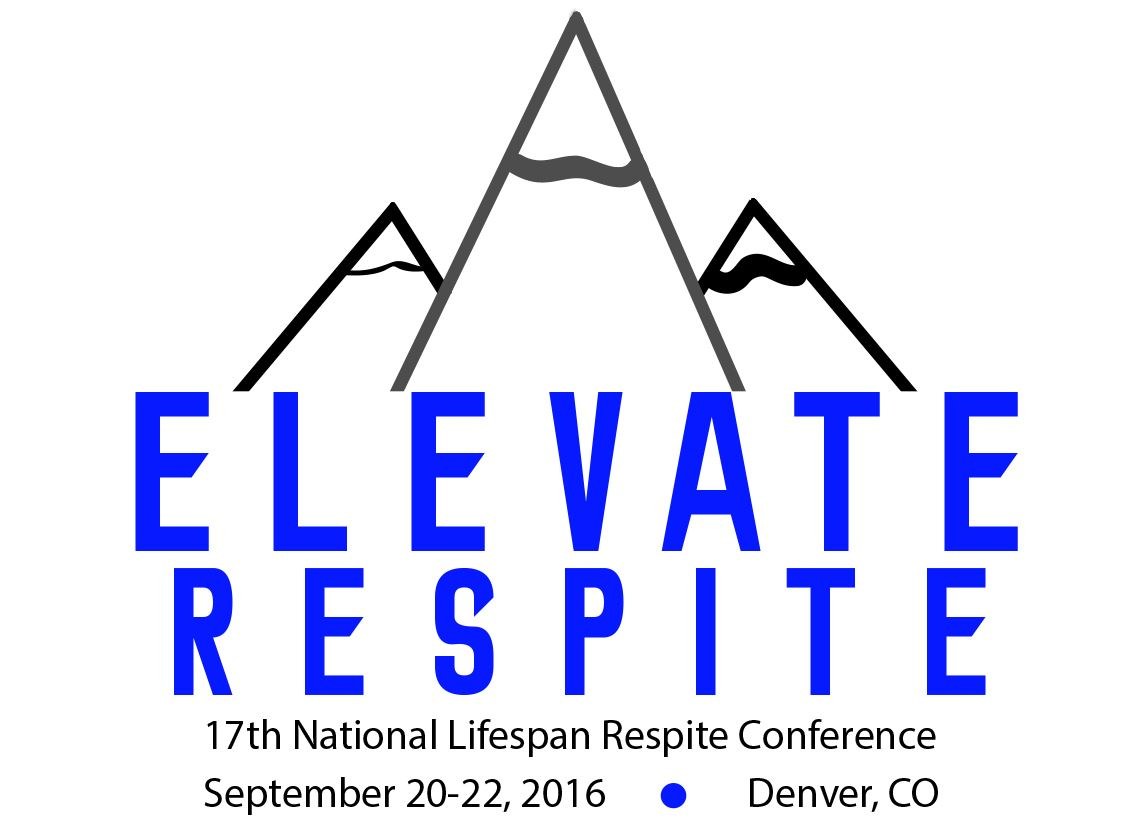
.jpg)




